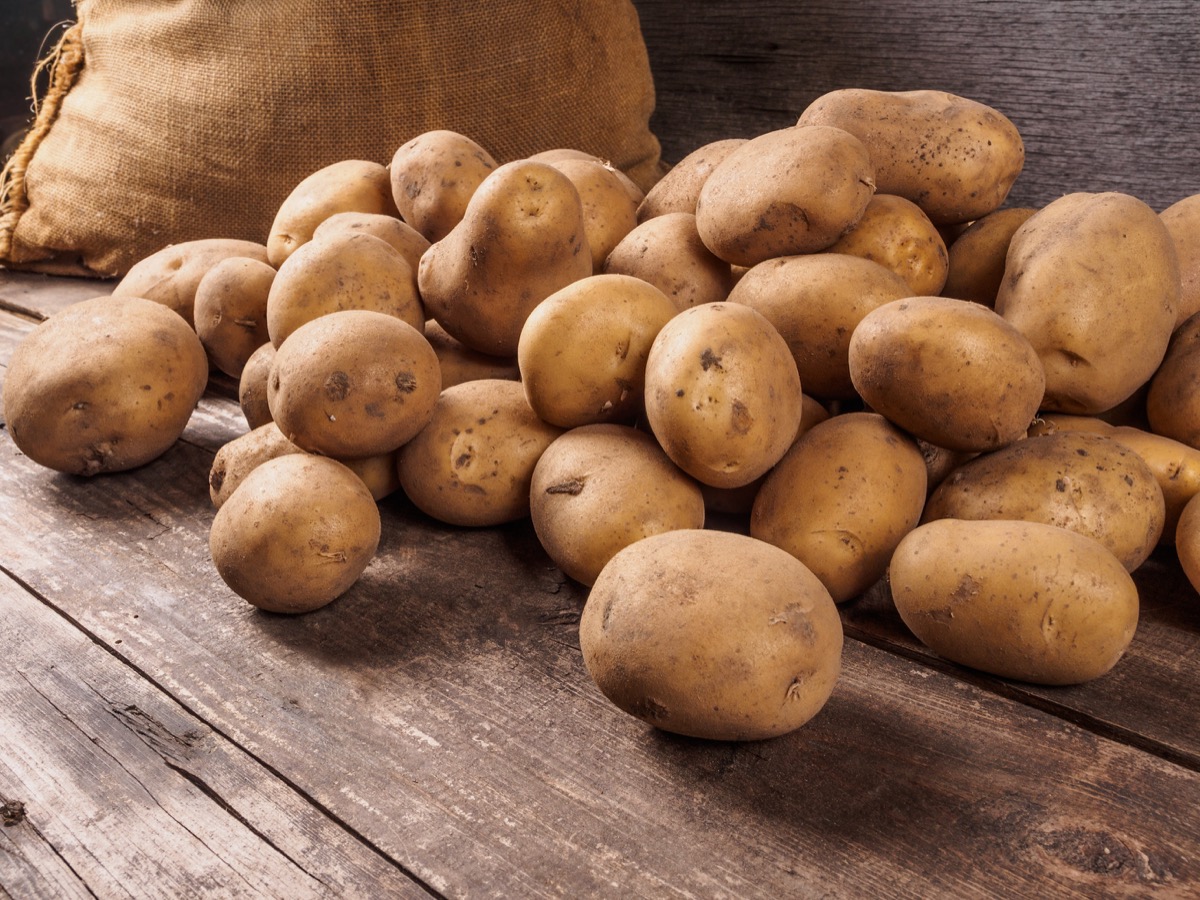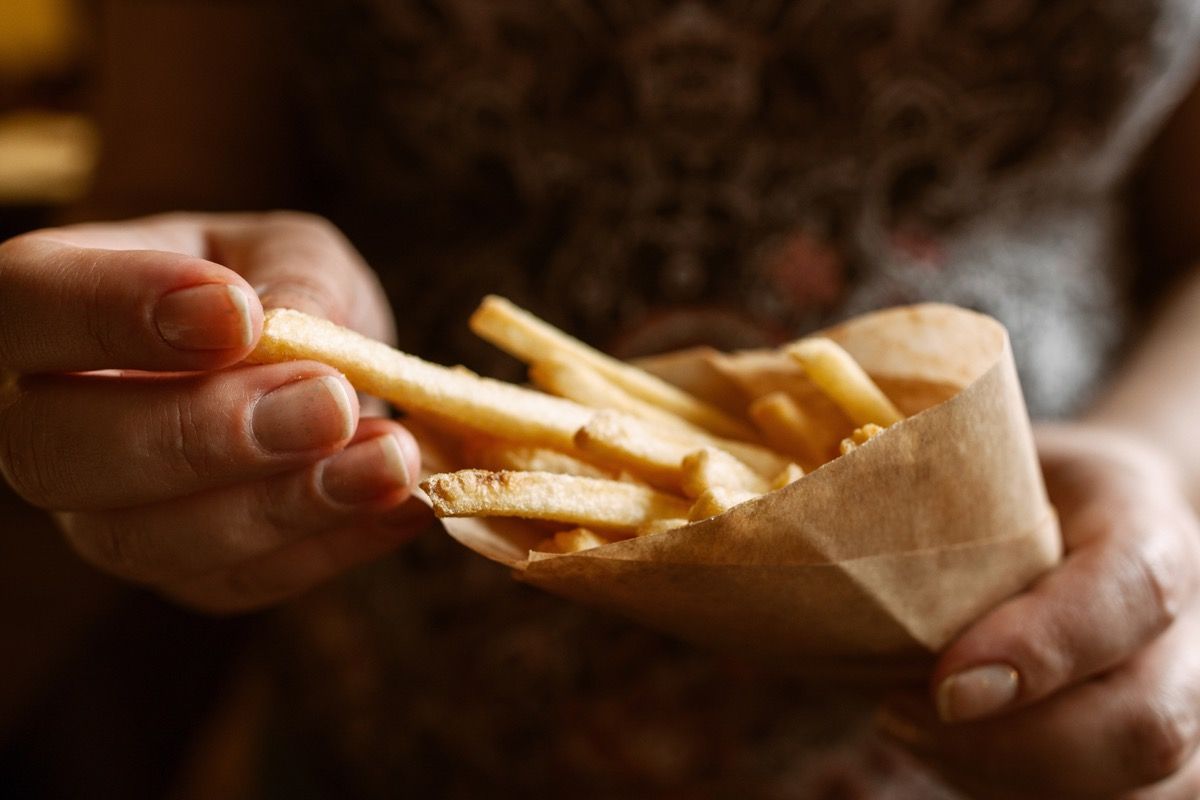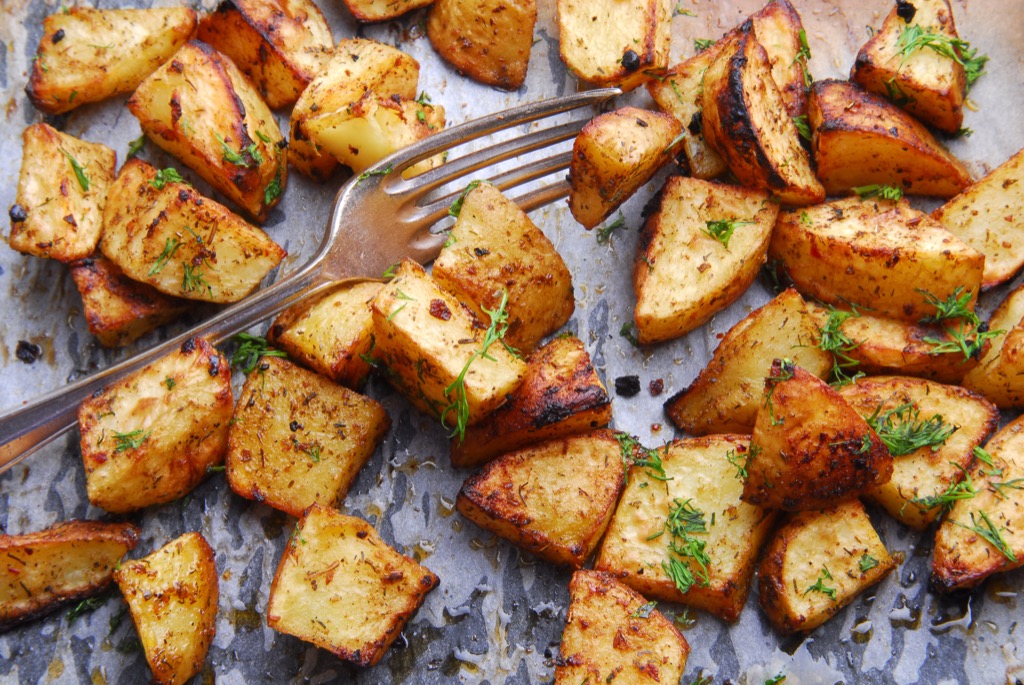RELATED: Eating This Dessert Every Day Slashes Heart Disease Risk, Study Shows. The new study, which was published in the journal Nutrients in May, set out to analyze the dietary sources of potassium and the effects that increased consumption could have on hypertension—also known as high blood pressure—and other cardiovascular health concerns. Researchers assembled 30 pre-hypertensive to hypertensive men and women and split them into four groups: One control group ate the typical American diet amount of 2,300 mg of potassium each day, while the other three groups added 1,000 mg of potassium in the form of french fries, or baked, boiled, or pan-cooked potatoes. Over the course of 16 days, participants had their blood pressure measured and urine and stool samples collected to measure potassium secretion. Results showed that participants who ate baked or boiled potatoes saw a significant decrease in systolic blood pressure compared to the control group and the supplement group, as well as the greatest benefit in sodium retention. Perhaps the most surprising revelation from the study came from the french fry diet group, though. Results showed that while participants’ blood pressure didn’t drop, eating fries at meals didn’t cause it to rise, either, turning one of the most common bits of dieting knowledge on its head. “It’s important to establish clinical trials that follow observational research to establish a causal link between diet and health,” the study’s lead researcher Connie Weaver, PhD, distinguished professor emerita in the department of nutrition science at Purdue, said in a statement. “For example, in this clinical study, baked French fries had a null effect on blood pressure, which counters observational findings, at least in the short term, and helps to prioritize the importance of focusing on a total diet approach for maintaining health versus one that overemphasizes avoidance of any single food or food group.” RELATED: Drinking One Glass of This a Day Slashes Your Heart Disease Risk, Study Says. According to the researchers, Americans already tend to eat a lot of potatoes: In fact, they make up an average of 20 percent of our vegetable intake overall. However, researchers say that the amount still falls short of dietary requirements, estimating that one medium-sized potato only contains about 10 percent of the daily potassium your body needs.ae0fcc31ae342fd3a1346ebb1f342fcb “While significant emphasis is often placed on reducing dietary sodium intakes to better control for blood pressure and cardiovascular disease risk, that’s only half of the story,” Weaver explained in her statement. “Potassium plays just as an important role, and perhaps the ratio of potassium to sodium is most important in the context of the entire food matrix, as the potato meal resulted in a greater reduction of sodium retention.” RELATED: For more up-to-date information, sign up for our daily newsletter. Based on their results, the Purdue researchers concluded that the new information could help reprioritize how we shape our eating habits. “Considering Americans fall significantly short in meeting daily potassium intakes, these findings show the importance of promoting, not restricting, whole food good-to-excellent sources of potassium in Americans’ diets, like potatoes,” Weaver said. While she recognized the study had its limitations, Weaver said, “Overall, we concluded that boiled or baked potatoes can help reduce systolic blood pressure—and baked French fries have no adverse effects on blood pressure and can be included as part of an overall healthy diet.” RELATED: Eating This Nut Once a Week Slashes Your Heart Disease Risk, Study Says.



